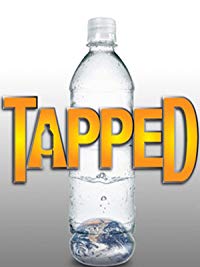By Abigail Dotterer || Staff Writer

The Green Cinema, hosted by the Center for the Sustainable Environment, is a series of films showcasing environmental issues. There are four showings for the fall semester and all will be held in Stahr Auditorium starting at 7 P.M.
The first showing for the cinema, was the 2009 documentary Tapped. It “takes a look at the current bottled water industry, and the effects it has socially, economically, and ecologically,” writes Professor and Director of the Center, Sarah Dawson in an email to the student body on September 17th.
According to sustainability intern Alessandra Rella, the film was chosen to be the first screening of the season “because it touches on such a ‘hot-topic.’” Rella says: “I hope people will really be intrigued to come and learn more. It is also, in my opinion, a really engaging and educational film, so hopefully people walk away feeling like they’ve learned something new and are inspired to take some action.”
She also says that the documentary “really shows how dependent we have become on bottled water, and how ridiculous that really is.” She continues by stating: “I think it’s really fascinating how quickly this industry convinced people that bottled water is ‘safer’ to drink or ‘tastes better’ than tapped water. As we all know, these attitudes toward bottled water have really caught on, and we can see plastic water bottles’ popularity and success in grocery stores, at parties, but also in our oceans, with all the plastic water bottle waste that has accumulated as a result. So I really think this film does a good job at showing how dependent and attached we as a society have become to bottled water and the problems that are ensuing.”
The Cinema also has a universal theme for the semester–– “Fresh Water.” Rella says this was chosen “because access to clean drinking water has become a huge issue, and in many ways we really are in a water crisis. However, a lot of people still don’t understand the severity of this crisis.” Rella thinks “it’s really important that people start realizing that this thing that we all need to survive will not always be so easy to access.”
The next screening, on Wednesday, October 3rd, is Standing on Sacred Ground: Islands of Sanctuary, which was released in 2013. Its summary, from Dawson, explains that “this documentary takes part of the Sacred Land Film Project, which aims to share stories of indigenous peoples, and their efforts to protect their sacred sites and culture. Islands of Sanctuary tells the story of Australian Aborigines who fight to protect their sacred river, and of Native Hawaiians, who work to restore the island of Kanaloa Kaho`olstandawe.”
Deeper into the semester is, on November 8th, También la lluvia (Even the Rain) will be showing. It is described that “Two men travel to Bolivia to make a controversial film on Christopher Columbus’ conquest. However, the film becomes difficult to complete when the local people (and most of their cast) begin to rise up against the privatization of the Cochabamba water supplies. This fictional drama gives a unique perspective on the Cochabamba Water War of 2000.”
The final screening for fall is 2008 documentary Flow: For the Love of Water. Its summary states: “Irena Salina’s documentary explores the industry and consumption of our most precious resource––water. This documentary features interviews with water activists who reveal the realities of our current and ever growing global water crisis. Focus is placed on politics, pollution, and human rights. This film not only identifies pressing issues, but also presents practical solutions.”
Rella says that The Center began “the Green Cinema series in 2014 because there were so many environmental films that were coming out around that time. The Center hoped to encourage learning outside the classroom environment, and also make students aware and really ‘see’ the many tragedies that have been unfolding around the world, but also the successful initiatives and efforts for change.”
One of the goals for the Green Cinema is “to inspire students to learn more about environmental issues and in turn hopefully encourage more environmental activism and education on campus,” says Rella.
First-year Abigail Dotterer is a contributing writer. Her email is adottere@fandm.edu.